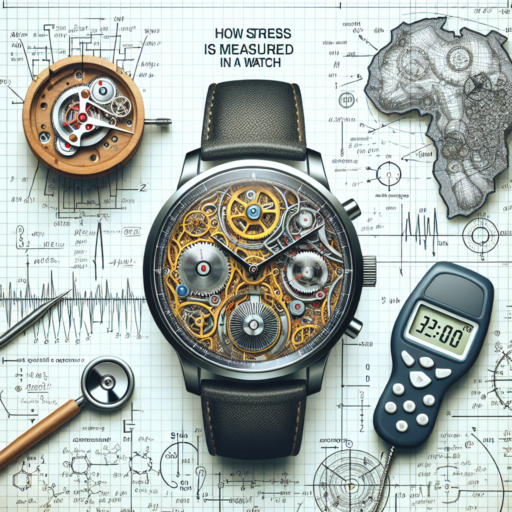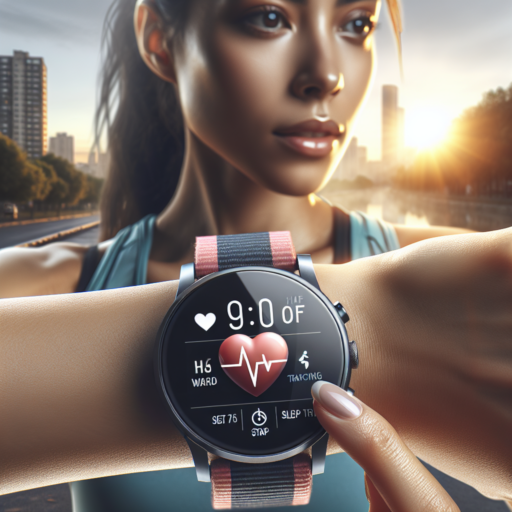What is the most accurate heart rate tracker?
When it comes to measuring heart rate with precision, not all trackers are created equal. The search for the most accurate heart rate tracker has led consumers and fitness enthusiasts alike to scrutinize a myriad of devices. Among these, chest strap monitors are often hailed for their accuracy. Unlike wrist-based trackers, chest straps measure electrical impulses transmitted by the heart, providing data akin to what might be seen in a medical setting.
Key Features of Accurate Heart Rate Trackers
- Precision Sensors: The accuracy of a heart rate tracker largely depends on its sensor quality. Advanced optical sensors found in high-end wrist trackers have narrowed the accuracy gap between wrist and chest strap devices.
- Real-time Monitoring: For athletes and fitness buffs, real-time data is crucial. The most accurate devices offer seamless monitoring, allowing users to adjust their efforts on the fly.
- Connectivity and Integration: Top-tier heart rate trackers offer robust connectivity features, allowing users to sync their data with smartphones and fitness apps for comprehensive health analysis.
Among the plethora of options, devices like the Polar H10 chest strap and the Garmin HRM-Dual stand out for their remarkable precision. For those who prefer wristwear, the Garmin Forerunner 945 and the Fitbit Charge 4 offer impressive accuracy for optical sensors. These devices exemplify the pinnacle of heart rate monitoring technology, blending accuracy, comfort, and ease of use.
What is the most accurate method of heart rate monitoring?
The quest for the most accurate heart rate monitoring method has involved a variety of technologies, each with its own set of benefits and drawbacks. When it comes to precision, electrocardiography (ECG or EKG) is often considered the gold standard. This technique measures the electrical activity of the heart over a period and is renowned for its high level of accuracy.
However, for most athletes and fitness enthusiasts, wearing an ECG monitor throughout the day or during a workout is not practical. This has led to the popularity of optical heart rate sensors, which can be found in smartwatches and fitness bands. These devices use light to measure the blood flow through the wrist, providing a non-intrusive yet reasonably accurate way to monitor heart rate continuously. While not as precise as ECG, they offer a good balance between convenience and accuracy for everyday users.
In controlled environments such as hospitals and clinics, chest strap monitors are frequently used for heart rate monitoring. These devices are strapped around the chest and detect the electrical signals of the heart, similar to an ECG. They are more accurate than wrist-based optical sensors and are preferred for medical monitoring and performing stress tests. Chest straps are also favored by professional athletes for their precision and reliability during intense workouts.
What is the most reliable heart rate app?
Finding the most reliable heart rate app can be a challenge with so many options available on the market. Users seek apps that provide accurate measurements, real-time monitoring, and detailed analysis of their heart rate patterns. A reliable heart rate app should not only measure your pulse but also offer insights into your cardiovascular health, allowing for a more informed approach to fitness and well-being.
Reliability in a heart rate app often depends on the technology used for monitoring. The best apps employ advanced algorithms and utilize the smartphone’s built-in sensors or integrate seamlessly with wearable heart rate monitors. This ensures that the readings are not only convenient but also precise, mirroring the capabilities of medical-grade devices to a significant extent.
Features such as historical data tracking, personalized health insights, and the ability to share data with health professionals also contribute to an app’s reliability. However, users must consider their personal health goals, the compatibility of the app with their devices, and the privacy policy of the app before deciding on the most reliable heart rate app for their needs.
No se han encontrado productos.
Which smartwatch do cardiologists recommend?
In the realm of wearable technology, smartwatches have emerged as pivotal tools in monitoring and managing heart health. Cardiologists often recommend devices that offer precise and reliable heart rate monitoring, alongside a suite of other health-oriented features. Among the sea of options, there are a few standout smartwatches that gain the nod of approval from heart health specialists.
Key Features Valued by Cardiologists
- Continuous Heart Rate Monitoring: Essential for tracking your heart health over time.
- ECG Functionality: Enables users to take an electrocardiogram from their wrist, capturing heart rhythm in moments of irregularity.
- SPO2 Monitoring: Measures blood oxygen levels, which can be critical for those with specific heart conditions.
Smartwatches that encapsulate these features, among others geared towards promoting a healthy lifestyle, stand out in the cardiologist’s recommendation list. Devices from leading technology brands often include proprietary algorithms that enhance the accuracy of health monitoring sensors, thereby providing users with valuable insights into their cardiovascular health.
It is worth noting, however, that while smartwatches can offer significant data about one’s heart health, they should not be seen as a substitute for professional medical advice or diagnosis. Cardiologists recommend these devices as a complement to traditional healthcare practices, allowing for an ongoing, everyday monitoring that can help in early detection and preventive health strategies.



